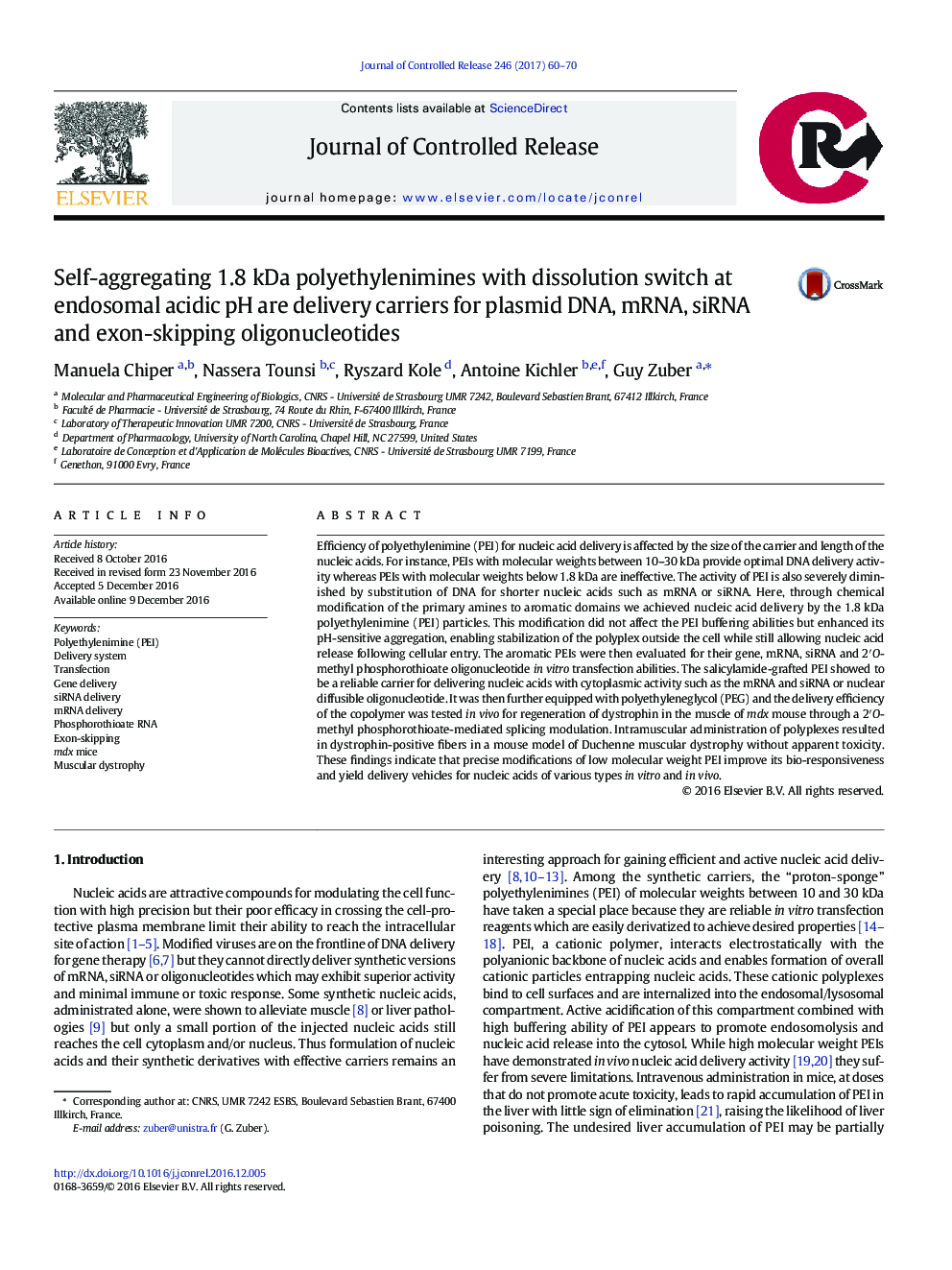| Article ID | Journal | Published Year | Pages | File Type |
|---|---|---|---|---|
| 5434014 | Journal of Controlled Release | 2017 | 11 Pages |
Efficiency of polyethylenimine (PEI) for nucleic acid delivery is affected by the size of the carrier and length of the nucleic acids. For instance, PEIs with molecular weights between 10-30Â kDa provide optimal DNA delivery activity whereas PEIs with molecular weights below 1.8Â kDa are ineffective. The activity of PEI is also severely diminished by substitution of DNA for shorter nucleic acids such as mRNA or siRNA. Here, through chemical modification of the primary amines to aromatic domains we achieved nucleic acid delivery by the 1.8Â kDa polyethylenimine (PEI) particles. This modification did not affect the PEI buffering abilities but enhanced its pH-sensitive aggregation, enabling stabilization of the polyplex outside the cell while still allowing nucleic acid release following cellular entry. The aromatic PEIs were then evaluated for their gene, mRNA, siRNA and 2â²O-methyl phosphorothioate oligonucleotide in vitro transfection abilities. The salicylamide-grafted PEI showed to be a reliable carrier for delivering nucleic acids with cytoplasmic activity such as the mRNA and siRNA or nuclear diffusible oligonucleotide. It was then further equipped with polyethyleneglycol (PEG) and the delivery efficiency of the copolymer was tested in vivo for regeneration of dystrophin in the muscle of mdx mouse through a 2â²O-methyl phosphorothioate-mediated splicing modulation. Intramuscular administration of polyplexes resulted in dystrophin-positive fibers in a mouse model of Duchenne muscular dystrophy without apparent toxicity. These findings indicate that precise modifications of low molecular weight PEI improve its bio-responsiveness and yield delivery vehicles for nucleic acids of various types in vitro and in vivo.
Graphical abstractDownload high-res image (410KB)Download full-size image
